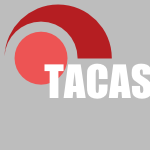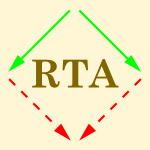61 papers:
 CASE-2015-FariaHGL #robust
CASE-2015-FariaHGL #robust- Extended high-gain observer for robust position control of a micro-gripper in air and vacuum (MGdF, YH, YLG, PL), pp. 1626–1631.
 VLDB-2015-ArocenaCGM #integration
VLDB-2015-ArocenaCGM #integration- Gain Control over your Integration Evaluations (PCA, RC, BG, RJM), pp. 1960–1971.
 TACAS-2015-BrazdilCFK #multi #named #synthesis
TACAS-2015-BrazdilCFK #multi #named #synthesis- MultiGain: A Controller Synthesis Tool for MDPs with Multiple Mean-Payoff Objectives (TB, KC, VF, AK), pp. 181–187.
 CSCW-2015-DantecF #research
CSCW-2015-DantecF #research- Strangers at the Gate: Gaining Access, Building Rapport, and Co-Constructing Community-Based Research (CALD, SF), pp. 1348–1358.
 ECIR-2015-UrbanoM #correlation #definite clause grammar #how #question #user satisfaction
ECIR-2015-UrbanoM #correlation #definite clause grammar #how #question #user satisfaction- How Do Gain and Discount Functions Affect the Correlation between DCG and User Satisfaction? (JU, MM), pp. 197–202.
 SAC-2015-QueirozH #capacity
SAC-2015-QueirozH #capacity- Translating full duplexity into capacity gains for the high-priority traffic classes of IEEE 802.11 (SQ, RH), pp. 634–639.
 ICSE-v1-2015-WinterSNSC #fault #injection #parallel
ICSE-v1-2015-WinterSNSC #fault #injection #parallel- No PAIN, No Gain? The Utility of PArallel Fault INjections (SW, OS, RN, NS, DC), pp. 494–505.
 DATE-2014-WanK #embedded
DATE-2014-WanK #embedded- An embedded offset and gain instrument for OpAmp IPs (JW, HGK), pp. 1–4.
 CHI-2014-OKaneRB #mobile
CHI-2014-OKaneRB #mobile- Gaining empathy for non-routine mobile device use through autoethnography (AAO, YR, AEB), pp. 987–990.
 DAC-2013-AvinashBEPP #energy #fault #hardware
DAC-2013-AvinashBEPP #energy #fault #hardware- Improving energy gains of inexact DSP hardware through reciprocative error compensation (LA, AB, CCE, KVP, CP), p. 8.
 CHI-2013-DoornSG #design #experience #research #user interface #using
CHI-2013-DoornSG #design #experience #research #user interface #using- Design research by proxy: using children as researchers to gain contextual knowledge about user experience (FvD, PJS, MG), pp. 2883–2892.
 ECIR-2013-MetrikovPA #consistency #nondeterminism #optimisation
ECIR-2013-MetrikovPA #consistency #nondeterminism #optimisation- Optimizing nDCG Gains by Minimizing Effect of Label Inconsistency (PM, VP, JAA), pp. 760–763.
 RecSys-2013-KucharK #case study #learning #named #web #web service
RecSys-2013-KucharK #case study #learning #named #web #web service- GAIN: web service for user tracking and preference learning — a smart TV use case (JK, TK), pp. 467–468.
 CHI-2012-CockburnQGF #documentation
CHI-2012-CockburnQGF #documentation- Improving scrolling devices with document length dependent gain (AC, PQ, CG, SF), pp. 267–276.
 CIKM-2012-LeelanupabZJ #analysis #cumulative #parametricity
CIKM-2012-LeelanupabZJ #analysis #cumulative #parametricity- A comprehensive analysis of parameter settings for novelty-biased cumulative gain (TL, GZ, JMJ), pp. 1950–1954.
 CIKM-2012-SmuckerC #probability #simulation
CIKM-2012-SmuckerC #probability #simulation- Stochastic simulation of time-biased gain (MDS, CLAC), pp. 2040–2044.
 ICML-2012-Nowozin #induction
ICML-2012-Nowozin #induction- Improved Information Gain Estimates for Decision Tree Induction (SN), p. 77.
 ITiCSE-2011-EllisHM #comparison #re-engineering #student
ITiCSE-2011-EllisHM #comparison #re-engineering #student- A comparison of software engineering knowledge gained from student participation in humanitarian foss projects (HJCE, GWH, RAM), p. 360.
 CIAA-2011-HolzerK #automaton #finite
CIAA-2011-HolzerK #automaton #finite- Gaining Power by Input Operations: Finite Automata and Beyond (MH, MK), pp. 16–29.
 OCSC-2011-BramanDCVW #student
OCSC-2011-BramanDCVW #student- Gaining Insight into the Application of Second Life in a Computing Course: Students’ Perspectives (JB, AD, KC, GV, YW), pp. 20–29.
 MLDM-2011-Grabczewski
MLDM-2011-Grabczewski- Separability of Split Value Criterion with Weighted Separation Gains (KG), pp. 88–98.
 CASE-2010-PaullGLM #adaptation #using
CASE-2010-PaullGLM #adaptation #using- An information gain based adaptive path planning method for an autonomous underwater vehicle using sidescan sonar (LP, SSG, HL, VM), pp. 835–840.
 MSR-2010-JuzgadoV #difference #re-engineering #using
MSR-2010-JuzgadoV #difference #re-engineering #using- Using differences among replications of software engineering experiments to gain knowledge (NJJ, SV).
 ICEIS-AIDSS-2010-AdamLDB #clustering #parallel #performance #using
ICEIS-AIDSS-2010-AdamLDB #clustering #parallel #performance #using- Performance Gain for Clustering with Growing Neural Gas using Parallelization Methods (AA, SL, SD, WB), pp. 264–269.
 CHI-2009-WobbrockFLKH
CHI-2009-WobbrockFLKH- The angle mouse: target-agnostic dynamic gain adjustment based on angular deviation (JOW, JF, SY(L, SK, SH), pp. 1401–1410.
 CIKM-2009-KanoulasA #empirical
CIKM-2009-KanoulasA #empirical- Empirical justification of the gain and discount function for nDCG (EK, JAA), pp. 611–620.
 ICML-2009-BusettoOB
ICML-2009-BusettoOB- Optimized expected information gain for nonlinear dynamical systems (AGB, CSO, JMB), pp. 97–104.
 ICML-2009-VolkovsZ #learning #named #ranking
ICML-2009-VolkovsZ #learning #named #ranking- BoltzRank: learning to maximize expected ranking gain (MV, RSZ), pp. 1089–1096.
 SIGIR-2009-CambazogluPB #distributed #performance #quality #web
SIGIR-2009-CambazogluPB #distributed #performance #quality #web- Quantifying performance and quality gains in distributed web search engines (BBC, VP, RABY), pp. 411–418.
 ICSM-2008-LiH #random testing #testing #using
ICSM-2008-LiH #random testing #testing #using- Using random test selection to gain confidence in modified software (WL, MJH), pp. 267–276.
 CHI-2008-CasiezV
CHI-2008-CasiezV- The effect of spring stiffness and control gain with an elastic rate control pointing device (GC, DV), pp. 1709–1718.
 CHI-2008-PererS #case study #data analysis #statistics #visualisation
CHI-2008-PererS #case study #data analysis #statistics #visualisation- Integrating statistics and visualization: case studies of gaining clarity during exploratory data analysis (AP, BS), pp. 265–274.
 CHI-2008-TsengH #adaptation #visual notation
CHI-2008-TsengH #adaptation #visual notation- The adaptation of visual search strategy to expected information gain (YCT, AH), pp. 1075–1084.
 ECIR-2008-JarvelinPDN #evaluation #information retrieval #multi
ECIR-2008-JarvelinPDN #evaluation #information retrieval #multi- Discounted Cumulated Gain Based Evaluation of Multiple-Query IR Sessions (KJ, SLP, LMLD, MLN), pp. 4–15.
 HPCA-2008-LinLDZZS #clustering #manycore #simulation
HPCA-2008-LinLDZZS #clustering #manycore #simulation- Gaining insights into multicore cache partitioning: Bridging the gap between simulation and real systems (JL, QL, XD, ZZ, XZ, PS), pp. 367–378.
 SEKE-2007-AlencarRSF #classification #modelling #probability #project management
SEKE-2007-AlencarRSF #classification #modelling #probability #project management- Combining Decorated Classification Trees with RCPS Stochastic Models to Gain New Valuable Insights into Software Project Management (AJA, GGR, EAS, ALF), pp. 151–156.
 CC-2007-BatchelderH #java #obfuscation
CC-2007-BatchelderH #java #obfuscation- Obfuscating Java: The Most Pain for the Least Gain (MB, LJH), pp. 96–110.
 DAC-2006-SinghMPO #nondeterminism #runtime
DAC-2006-SinghMPO #nondeterminism #runtime- Gain-based technology mapping for minimum runtime leakage under input vector uncertainty (AKS, MM, RP, MO), pp. 522–527.
 IWPC-2005-RevelleBC #case study #comprehension
IWPC-2005-RevelleBC #case study #comprehension- Understanding Concerns in Software: Insights Gained from Two Case Studies (MR, TB, DC), pp. 23–32.
 SIGIR-2005-VriesR #question
SIGIR-2005-VriesR #question- Relevance information: a loss of entropy but a gain for IDF? (APdV, TR), pp. 282–289.
 DATE-v1-2004-GinesPR #fault #pipes and filters
DATE-v1-2004-GinesPR #fault #pipes and filters- Digital Background Gain Error Correction in Pipeline ADCs (AJG, EJP, AR), pp. 82–87.
 ICGT-2004-EhrenfeuchtHHR
ICGT-2004-EhrenfeuchtHHR- Embedding in Switching Classes with Skew Gains (AE, JH, TH, GR), pp. 257–270.
 DAC-2003-HuWKM #library
DAC-2003-HuWKM #library- Gain-based technology mapping for discrete-size cell libraries (BH, YW, AK, MMS), pp. 574–579.
 DATE-2003-EberleVWDGM #automation #behaviour #modelling #simulation
DATE-2003-EberleVWDGM #automation #behaviour #modelling #simulation- Behavioral Modeling and Simulation of a Mixed Analog/Digital Automatic Gain Control Loop in a 5 GHz WLAN Receiver (WE, GV, PW, SD, GGEG, HDM), pp. 10642–10649.
 CHI-2003-JackoSSBEEKMZ #feedback #multimodal #performance #question #visual notation #what
CHI-2003-JackoSSBEEKMZ #feedback #multimodal #performance #question #visual notation #what- Older adults and visual impairment: what do exposure times and accuracy tell us about performance gains associated with multimodal feedback? (JAJ, IUS, FS, LB, PJE, VKE, TK, KPM, BSZ), pp. 33–40.
 SIGIR-2003-Sakai #evaluation #multi #performance #retrieval
SIGIR-2003-Sakai #evaluation #multi #performance #retrieval- Average gain ratio: a simple retrieval performance measure for evaluation with multiple relevance levels (TS), pp. 417–418.
 SAC-2003-KaramHGR #evaluation #image #retrieval #using
SAC-2003-KaramHGR #evaluation #image #retrieval #using- Enhancement of Wavelet-Based Medical Image Retrieval Through Feature Evaluation Using an Information Gain Measure (OHK, AMH, SG, SR), pp. 220–226.
 ICML-2002-TakechiS #induction
ICML-2002-TakechiS #induction- Finding an Optimal Gain-Ratio Subset-Split Test for a Set-Valued Attribute in Decision Tree Induction (FT, ES), pp. 618–625.
 ICPR-v3-2002-GarciaFRF #image #performance #predict
ICPR-v3-2002-GarciaFRF #image #performance #predict- Performance of the Kullback-Leibler Information Gain for Predicting Image Fidelity (JAG, JFV, RRS, XRFV), pp. 843–848.
 SIGIR-2002-CarmelFPS #automation #information management #query #refinement #using
SIGIR-2002-CarmelFPS #automation #information management #query #refinement #using- Automatic query refinement using lexical affinities with maximal information gain (DC, EF, YP, AS), pp. 283–290.
 KDD-2001-CarageaCH #classification #using
KDD-2001-CarageaCH #classification #using- Gaining insights into support vector machine pattern classifiers using projection-based tour methods (DC, DC, VH), pp. 251–256.
 DATE-1999-LechnerFRH #automation #performance #self
DATE-1999-LechnerFRH #automation #performance #self- A Digital Partial Built-In Self-Test for a High Performance Automatic Gain Control Circuit (AL, JF, AR, BH), pp. 232–238.
 KDD-1999-BrinRS #mining
KDD-1999-BrinRS #mining- Mining Optimized Gain Rules for Numeric Attributes (SB, RR, KS), pp. 135–144.
 EDTC-1997-LuS
EDTC-1997-LuS- A CMOS low-voltage, high-gain op-amp (GNL, GS), pp. 51–55.
 ICFP-1997-Lassila #code generation #confluence #context-sensitive grammar #functional #metaprogramming #optimisation
ICFP-1997-Lassila #code generation #confluence #context-sensitive grammar #functional #metaprogramming #optimisation- A Functional Macro Expansion System for Optimizing Code Generation: Gaining Context-Sensitivity without Losing Confluence (EL), p. 315.
 SAC-1996-MisirMC #approach #fuzzy #heuristic
SAC-1996-MisirMC #approach #fuzzy #heuristic- A heuristic approach to determine the gains of a fuzzy PID controller (DM, HAM, GC), pp. 609–613.
 RTA-1996-HillenbrandBF #on the #performance #proving #theorem proving
RTA-1996-HillenbrandBF #on the #performance #proving #theorem proving- On Gaining Efficiency in Completion-Based Theorem Proving (TH, AB, RF), pp. 432–435.
 TRI-Ada-C-1992-ArbaughG #development #experience #process
TRI-Ada-C-1992-ArbaughG #development #experience #process- A Modern Development Process: Experience Gained from Topaz Project (RA, MG), pp. 240–248.
 HPDC-1992-GrimshawWP #biology #case study #experience
HPDC-1992-GrimshawWP #biology #case study #experience- No Pain and Gain — Experiences with Mentat on a Biological Application (ASG, EAW, WRP), pp. 57–66.
 SIGMOD-1991-NgFS #flexibility
SIGMOD-1991-NgFS #flexibility- Flexible Buffer Allocation Based on Marginal Gains (RTN, CF, TKS), pp. 387–396.
 SIGIR-1983-Rijsbergen
SIGIR-1983-Rijsbergen- A Discrimination Gain Hypothesis (CJvR), pp. 101–104.
 CASE-2015-FariaHGL #robust
CASE-2015-FariaHGL #robust VLDB-2015-ArocenaCGM #integration
VLDB-2015-ArocenaCGM #integration TACAS-2015-BrazdilCFK #multi #named #synthesis
TACAS-2015-BrazdilCFK #multi #named #synthesis CSCW-2015-DantecF #research
CSCW-2015-DantecF #research ECIR-2015-UrbanoM #correlation #definite clause grammar #how #question #user satisfaction
ECIR-2015-UrbanoM #correlation #definite clause grammar #how #question #user satisfaction SAC-2015-QueirozH #capacity
SAC-2015-QueirozH #capacity ICSE-v1-2015-WinterSNSC #fault #injection #parallel
ICSE-v1-2015-WinterSNSC #fault #injection #parallel DATE-2014-WanK #embedded
DATE-2014-WanK #embedded CHI-2014-OKaneRB #mobile
CHI-2014-OKaneRB #mobile DAC-2013-AvinashBEPP #energy #fault #hardware
DAC-2013-AvinashBEPP #energy #fault #hardware CHI-2013-DoornSG #design #experience #research #user interface #using
CHI-2013-DoornSG #design #experience #research #user interface #using ECIR-2013-MetrikovPA #consistency #nondeterminism #optimisation
ECIR-2013-MetrikovPA #consistency #nondeterminism #optimisation RecSys-2013-KucharK #case study #learning #named #web #web service
RecSys-2013-KucharK #case study #learning #named #web #web service CHI-2012-CockburnQGF #documentation
CHI-2012-CockburnQGF #documentation CIKM-2012-LeelanupabZJ #analysis #cumulative #parametricity
CIKM-2012-LeelanupabZJ #analysis #cumulative #parametricity CIKM-2012-SmuckerC #probability #simulation
CIKM-2012-SmuckerC #probability #simulation ICML-2012-Nowozin #induction
ICML-2012-Nowozin #induction ITiCSE-2011-EllisHM #comparison #re-engineering #student
ITiCSE-2011-EllisHM #comparison #re-engineering #student CIAA-2011-HolzerK #automaton #finite
CIAA-2011-HolzerK #automaton #finite OCSC-2011-BramanDCVW #student
OCSC-2011-BramanDCVW #student MLDM-2011-Grabczewski
MLDM-2011-Grabczewski CASE-2010-PaullGLM #adaptation #using
CASE-2010-PaullGLM #adaptation #using MSR-2010-JuzgadoV #difference #re-engineering #using
MSR-2010-JuzgadoV #difference #re-engineering #using ICEIS-AIDSS-2010-AdamLDB #clustering #parallel #performance #using
ICEIS-AIDSS-2010-AdamLDB #clustering #parallel #performance #using CHI-2009-WobbrockFLKH
CHI-2009-WobbrockFLKH CIKM-2009-KanoulasA #empirical
CIKM-2009-KanoulasA #empirical ICML-2009-BusettoOB
ICML-2009-BusettoOB ICML-2009-VolkovsZ #learning #named #ranking
ICML-2009-VolkovsZ #learning #named #ranking SIGIR-2009-CambazogluPB #distributed #performance #quality #web
SIGIR-2009-CambazogluPB #distributed #performance #quality #web ICSM-2008-LiH #random testing #testing #using
ICSM-2008-LiH #random testing #testing #using CHI-2008-CasiezV
CHI-2008-CasiezV CHI-2008-PererS #case study #data analysis #statistics #visualisation
CHI-2008-PererS #case study #data analysis #statistics #visualisation CHI-2008-TsengH #adaptation #visual notation
CHI-2008-TsengH #adaptation #visual notation ECIR-2008-JarvelinPDN #evaluation #information retrieval #multi
ECIR-2008-JarvelinPDN #evaluation #information retrieval #multi HPCA-2008-LinLDZZS #clustering #manycore #simulation
HPCA-2008-LinLDZZS #clustering #manycore #simulation SEKE-2007-AlencarRSF #classification #modelling #probability #project management
SEKE-2007-AlencarRSF #classification #modelling #probability #project management CC-2007-BatchelderH #java #obfuscation
CC-2007-BatchelderH #java #obfuscation DAC-2006-SinghMPO #nondeterminism #runtime
DAC-2006-SinghMPO #nondeterminism #runtime IWPC-2005-RevelleBC #case study #comprehension
IWPC-2005-RevelleBC #case study #comprehension SIGIR-2005-VriesR #question
SIGIR-2005-VriesR #question DATE-v1-2004-GinesPR #fault #pipes and filters
DATE-v1-2004-GinesPR #fault #pipes and filters ICGT-2004-EhrenfeuchtHHR
ICGT-2004-EhrenfeuchtHHR DAC-2003-HuWKM #library
DAC-2003-HuWKM #library DATE-2003-EberleVWDGM #automation #behaviour #modelling #simulation
DATE-2003-EberleVWDGM #automation #behaviour #modelling #simulation CHI-2003-JackoSSBEEKMZ #feedback #multimodal #performance #question #visual notation #what
CHI-2003-JackoSSBEEKMZ #feedback #multimodal #performance #question #visual notation #what SIGIR-2003-Sakai #evaluation #multi #performance #retrieval
SIGIR-2003-Sakai #evaluation #multi #performance #retrieval SAC-2003-KaramHGR #evaluation #image #retrieval #using
SAC-2003-KaramHGR #evaluation #image #retrieval #using ICML-2002-TakechiS #induction
ICML-2002-TakechiS #induction ICPR-v3-2002-GarciaFRF #image #performance #predict
ICPR-v3-2002-GarciaFRF #image #performance #predict SIGIR-2002-CarmelFPS #automation #information management #query #refinement #using
SIGIR-2002-CarmelFPS #automation #information management #query #refinement #using KDD-2001-CarageaCH #classification #using
KDD-2001-CarageaCH #classification #using DATE-1999-LechnerFRH #automation #performance #self
DATE-1999-LechnerFRH #automation #performance #self KDD-1999-BrinRS #mining
KDD-1999-BrinRS #mining EDTC-1997-LuS
EDTC-1997-LuS ICFP-1997-Lassila #code generation #confluence #context-sensitive grammar #functional #metaprogramming #optimisation
ICFP-1997-Lassila #code generation #confluence #context-sensitive grammar #functional #metaprogramming #optimisation SAC-1996-MisirMC #approach #fuzzy #heuristic
SAC-1996-MisirMC #approach #fuzzy #heuristic RTA-1996-HillenbrandBF #on the #performance #proving #theorem proving
RTA-1996-HillenbrandBF #on the #performance #proving #theorem proving TRI-Ada-C-1992-ArbaughG #development #experience #process
TRI-Ada-C-1992-ArbaughG #development #experience #process HPDC-1992-GrimshawWP #biology #case study #experience
HPDC-1992-GrimshawWP #biology #case study #experience SIGMOD-1991-NgFS #flexibility
SIGMOD-1991-NgFS #flexibility SIGIR-1983-Rijsbergen
SIGIR-1983-Rijsbergen









